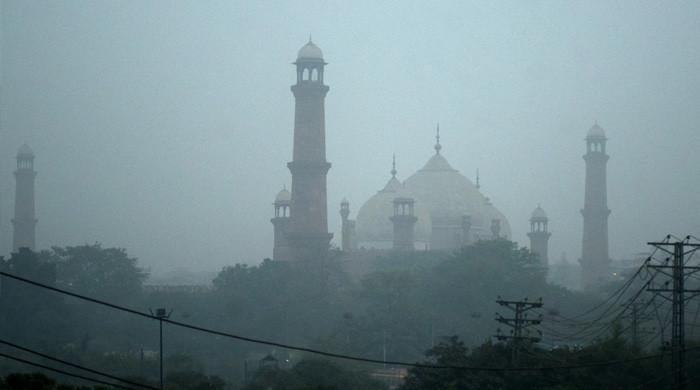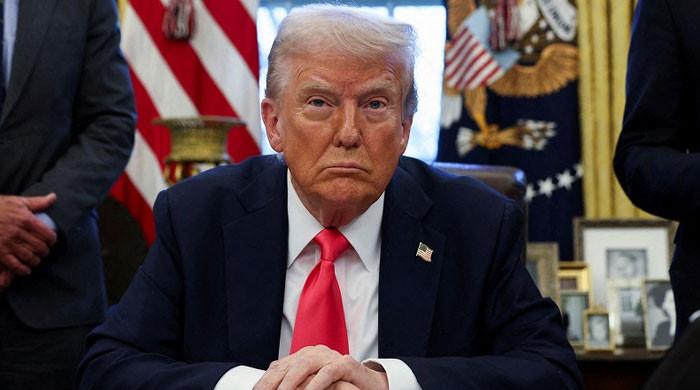Communicating Economics
What does the recent row between a leading economist and the government tell us about the economic milieu?
January 09, 2019

Recently, there was a row between the government and a leading economist of Pakistan, who in October was appointed the spokesperson on economy and energy. But this month, the spokesperson, it seems, was let go after he took an independent view of the economy rather than talking boastfully about the new government's achievements. A video clip of him excoriating the government on a talk show went viral, after which the minister of information tweeted that the spokesperson had not been appointed in the first place.
Whatever the reality maybe, it is evident that there is nervousness across the government regarding the current economic milieu.
The above-mentioned public row also indicates that this nervousness is leading to indecisiveness. Perhaps, the most dangerous element in the prevalent economic situation is that the markets are quick to note that economic mangers are acting in panic mode. This potentially can lead to situations which economists call 'currency and bank runs'.
The media gives prime time to exhibit what a common man on the street thinks about economic management. Two questions are being asked by the wider public: Was this cabinet not cognizant of economic challenges facing the country? Is the economic management team competent to find solutions to these challenges?
The latter question is important, as even after several months of being in power, the government is unable to recruit a full-time and credible macroeconomist in the ministry of finance. In fact, the most important units in the ministry, including those responsible for budget formulation, do not house economists with strong credentials.
The situation is not very different in the planning commission, ministry of commerce, or even the line ministries, which are responsible to facilitate economic growth such as the ministry of industries and production.
It is no wonder then that the government is finding it difficult to communicate the state of the economy to the citizens of Pakistan.
Let us also turn to countries in the region and see how they are able to do a better job in communicating economics. The ministry of finance in India has a National Institute of Public Finance and Policy, which provides timely and high quality research for the ministry and the government. Apart from bridging the research and capacity building gaps of the ministry, the institute also assists state and local governments in formulating and reforming their economic plans. In the form of this institute, the ministry of finance in New Delhi has the services of 24 PhDs in economics. Over to the ministry of finance in Bangladesh, which has also set up the Institute of Public Finance meant for strengthening public finance management capacities at the national and sub-national level.
It is unfortunate that our economic ministries refrain from using evidence as the basis for economic policy making. Given the weak demand in public sector for local research on macroeconomic management, the supply of research on this subject has also remained weak or irrelevant. In fact, the ministry of finance rarely provides funding to local think tanks for research on reforms related to taxation, expenditure management, or balance of payment challenges. Most think tanks that undertake such research have to resort to (or wait for) donor funding.
Soon after assuming office, the prime minister took a bold step by setting up an Economic Advisory Council (EAC) to support inclusive economic discourse. However, while the EAC can give state-of-the-art advice, he will still need good economists in ministries and regulatory bodies to formulate and implement sound fiscal and monetary policies and communicate well with the markets and citizens.
The prime minister's task force on institutional reforms may also look at the civil service reform efforts in Malaysia—of which Mr. Imran Khan talks about quiet often.
Malaysian spatial planning system looks at the regional planning and development through national, state, and local tiers. Having a spatial focus in social policies, which create jobs, mitigate inequalities, and gender disparities, and ensure public service delivery, can better serve economically lagging regions.
In one of the past opinion pieces, we had suggested that economic planning per se is not enough and therefore we also need to learn how, through robust monitoring and evaluation in the public sector, Malaysia continues to ensure that medium-term development plans get implemented in a timely and cost-efficient manner.
Ahmed is joint executive director of the Sustainable Development Policy Institute, Pakistan. He tweets @vaqarahmed











